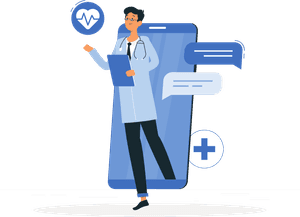![Healthy Matters]() Pharmacist Tips | Dosages | Side effects
Pharmacist Tips | Dosages | Side effects![Healthy Matters]() Nutritionist Tips | Facts | Precautions
Nutritionist Tips | Facts | Precautions![Healthy Matters]() Practitioner Tips | Dosages | Side effects
Practitioner Tips | Dosages | Side effects![Healthy Matters]()
![Healthy Matters]()
The Complete Guide to ADHD in Hong Kong
5 min read

Looking for expert information about ADHD? Healthy Matters brings you a complete, practical, doctor-reviewed guide to ADHD in Hong Kong.
Methodology: This guide is informative only, doesn’t aim to be exhaustive and is based on our research.
ADHD Statistics
Previously known as ADD (Attention Deficit Disorder), ADHD is a behavioral disorder that causes children to be hyperactive or being unable to control their impulses which severely affects their ability to pay attention. This disorder might extend to their adulthood and affect the way that they live their life at home or at their school.
Globally, ADHD is the most common mental disorder in children. In Hong Kong, it affects 6.4% of children with a 3 to 1 boy to girl ratio. The Child Assessment Service from the Department of Health in Hong Kong says that symptoms of ADHD persist on 80% of children in the teenage stage, and 65% of the children in adulthood therefore 2.5% of adults have ADHD.
Signs and Symptoms of ADHD
There are different signs and symptoms of ADHD in children and ADHD in adults.
Children
Signs and symptoms of ADHD in children can be categorized into 3 parts, as listed below:
Inattentive:
- Easily distracted
- Constantly daydreaming
- Doesn’t appear to be listening
- Doesn’t follow directions or finish tasks
- Doesn’t pay attention and makes careless mistakes
- Forgets about daily activities
- Has problems organizing daily tasks
- Doesn’t enjoy tasks that require sitting still or sustained mental effects
- Often loses things
Hyperactive:
- Leave seats when remaining seated is expected
- Often moves, squirms, fidgets, or bounces when sitting
- Has trouble playing quietly
- Constantly moves around, such as running or climbing as if “driven by a motor”
- Talks excessively
Impulsive:
- Has trouble lining up
- Blurts out answers
- Interrupts others
Adults
Symptoms of ADHD are usually visible from a very young age but for some cases, it can only be significantly identified as the person grows older, when complications start to develop.
Signs and symptoms in adults are as listed below:
- Chronic boredom
- Chronic lateness and forgetfulness
- Easily frustrated
- Procrastination
- Trouble controlling anger
- Impulsiveness
- Trouble concentrating when reading
- Mood swings
- Depression, which is a complication of untreated ADHD
- Substance abuse or addiction
- Anxiety
- Low self-esteem
What causes ADHD?
There are no exact causes known for ADHD however there are factors that researchers think could lead to it, including:
- Genetics: Genetics tends to run in families and is thought to be one of the main contributing factors in ADHD. However, it is known that the passing down of ADHD is complex and is not just the cause of a single genetic fault.
- Brain development: It is known that with ADHD, areas of the brain that controls attention are less active and that there are certain areas in the brain that are smaller and certain areas that are larger. It is also said that the brain chemicals in people who have ADHD are out of balance.
- Brain Injuries: It is known that damage to the brain (the frontal lobe) can cause problems that will have an effect on self-control of impulses and emotions. These brain injuries can happen either in the womb or after a severe head injury later in life.
There are some factors during pregnancy that are also thought to lead to ADHD:
- Premature birth (before the 37th week of pregnancy)
- Low birthweight
- Smoking, alcohol drinking or drug abuse during pregnancy

ADHD assessment
ADHD cannot be diagnosed by brain imaging (CT scan, MRI or PET), however there are tests that can help diagnose ADHD. Here are some things to confirm before bringing your child to see a psychiatrist:
- displaying symptoms similar to ADHD starting before the age of 12 and continuously for at least 6 months
- ADHD symptoms show up not only in one but in two different environments (to make sure that they are not behaving like this because of certain people)
- The symptoms are not just another different developmental disorder or difficult phase and could not be described better by another condition than ADHD.
To be diagnosed with ADHD, the child must show at least six symptoms of inattentive, hyperactivity and impulsiveness mentioned above.
The assessment may or may not include:
- a physical examination, that serves to exclude other possible causes for the symptoms
- Interview questions with you and your child and interview or reports from other significant people, such as partners, parents and teachers
An adult needs at least five sets of inattentiveness or at least five sets of hyperactive and impulsive symptoms, for ADHD to be diagnosed. If however your problems are recent and you don’t have these symptoms since childhood, it is not considered ADHD because ADHD is thought not possible for it to only appear as an adult.
For an adult to be diagnosed with ADHD, their symptoms should also have a moderate effect on different areas, such as:
- Underachieving at work or in education
- Dangerous driving
- Difficulty in making or keeping friends
- Difficulty in relationships with partners
If you believe a child in your family is suffering from ADHD, you may talk to a specialist from the Child Assessment Service at 2246-6659 or visit the ADHD Foundation‘s website for more details.
How to treat ADHD?
ADHD cannot be prevented or cured. It is, however, possible to minimize its effects in adulthood through medication, treatment, or food diet. ADHD should ideally be assessed and managed before or at the age of 9, in order to minimise its effects in the long run.
Stimulants such as Ritalin, Adderall and Dexedrine are medications that can be used to treat symptoms of ADHD, however, it is not guaranteed to work for everybody and does not serve as a permanent cure. It may help with improving the ability to concentrate, controlling impulses, thinking ahead with planning, and being responsible to follow through the tasks given.
There are many different kinds of therapies that can help treat ADHD:
- Psychoeducation: education to encourage talks about ADHD and its effects to increase awareness of the symptoms;
- Behaviour therapy: keeps track of their behaviour and uses the reward system to encourage the child to control their ADHD;
- Social Skill Training: This therapy involves your children to roleplay on social situations to teach kids the effect of their behaviour;
- Cognitive Behavioural Training (CBT): CBT is a talking therapy that helps change your perspective by changing the way you think and behave. The therapist will try to change the child’s perspective, and therefore potentially changing the way they behave.
Other than therapies or medicine, researchers found that low consumption in fruits, fish, vegetables, whole grains and nuts leads to an increased risk of ADHD. Red meat, egg and dairy products adding up to the cycle.
There are also some dietary interventions for children with ADHD which are:
- Omega power: too much of omega power is found to cause defects in neuroplasticity which affects the brain’s ability to reorganize information.
- Cut down sugar: unhealthy, sugar diet can have a negative effect on brain function and mood that might result in a sugar rush.
- Protein-rich breakfast: Protein helps to awaken neurotransmitters that are in charge of sending signals from one brain cell to another, resulting in the children to be more alert and focus.
- Avoid trigger foods: Elimination diet can help in figuring out which food can make the ADHD worse and to avoid them.
What is the cost of ADHD treatment in Hong Kong?
In Hong Kong, the cost of a consultation with a psychiatrist varies greatly as is the case for most doctors, depending on the location and facilities. Our research shows that consultations in the private sector range from $790 to $3,000.
For eligible HKID-holders, attending a public specialist clinic would cost $135 for first attendance and $80 for subsequent attendance. For service at psychiatric day hospitals, there is a fee of $60 for each attendance and no fee is charged for community nursing services in the psychiatric department.
For non-eligible people, the price of attending a public general clinic is $1,190 per attendance. The inpatient service fee at psychiatric hospitals is $2,340 per day. For service at psychiatric day hospitals, there is a fee of $1,260 per attendance and community nursing services charge $1,550 per visit.
Please enquire at your clinic of choice for the specific costs.
*All amounts are in HKD. No responsibility is accepted for any inaccuracies, errors, or omissions. It is always best to call ahead to make sure the information is still up-to-date.
Useful Resources About ADHD in Hong Kong
This article was medically reviewed on 26 June 2019 by Pediatrician Dr. Wai Fan Fanny LAM, MRCP(UK), HKCPaed, HKAM(Paed), Specialist in Developmental-Behavioural Paediatrics, Honorary Assistant Clinical Professor, University of Hong Kong, and Tutor for The Association for Research in Infant and Child Development, UK.
Does insurance usually cover the cost of ADHD treatment in Hong Kong?
According to Alea, ADHD treatment is generally not covered by health insurance. If pre-existing when purchasing a medical plan, it is usually excluded and therefore not covered. When covered, ADHD claims are generally eligible under doctor specialist consultation.
If you have any health insurance questions, contact an advisor at Alea at [email protected].
This article was independently written by Healthy Matters. It is informative only and not intended to be a substitute for professional medical advice, diagnosis or treatment. It should not be relied upon for specific medical advice.

Your health resource, made in Hong Kong
Healthy Matters is Hong Kong’s leading health resource. Our mission is to help you make better health decisions and take control of your health.
Our team of experts is committed to producing reliable health content that is accurate, engaging and relevant, to cover your health & wellness journey from prevention to treatment.
Whether you are looking for trusted information on health conditions, wellbeing or looking for the right doctor or service in Hong Kong, we’re here to help!
Your health matters. Begin your health journey with Healthy Matters today!

































